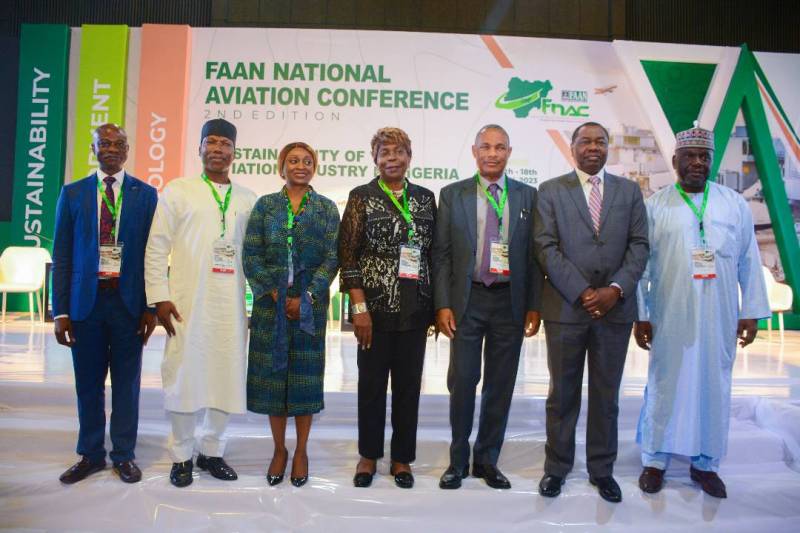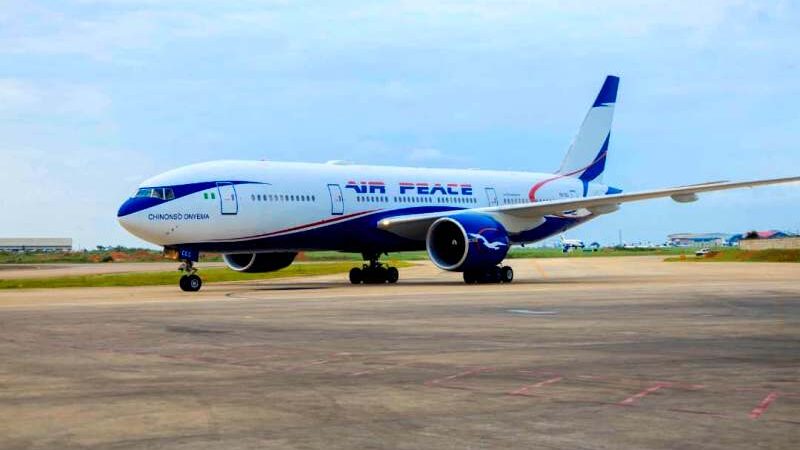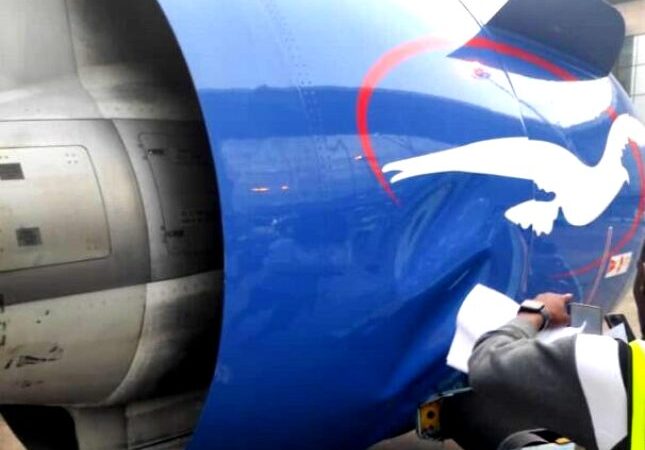Aircraft Emissions, Emotions, Issues In Climate Change Effect

Nigeria is in crisis as regards environmental impact of climate change and records the highest loss of primary forest in West Africa, having lost over 60% of its primary forest in the last four years to the extent that southern Niger is greener than northern Nigeria.
This is according to the Director General, Civil Aviation, Nigerian Civil Aviation Authority (NCAA), Capt. Musa Nuhu who stated this while making a presentation titled Fly2Green 4 A Sustainable Future, at the FAAN National Aviation Conference (FNAC) 2023 held at International Conference Centre, Abuja from May 15 to 18, 2023.
He said Africa receives only 3% of the global climate financing, receiving the least financing to check climate change, even though Africa has the worst of the impact.
Supporting this position, the former President of the Council of International Civil Aviation Organization (ICAO), Dr. O. B Aliu said there is an ongoing global effort to enhance sustainability of aviation environment and that Nigeria volunteered to be part of the process, which is supposed to be a stop gap measure to reduce emissions but that more innovation is required. He said Nigeria had the capacity to achieve up to 10% reduction if the measures being taken by Nigerian Airspace Management Agency (NAMA), NCAA and other agencies are considered but that the efforts are not sufficient considering the urgency of needed action. Aliu said those who think that some countries are not ready for the measures and so, they should be waited for should think twice, adding that rather than acquiring modern airplanes that are emissions compliant, they acquire cheap aircraft.
“The cost of acquisition may be cheap but the rejected technology they acquire may be low in emissions standards. The cost of running it is higher,” he said.
He equally supported the sustainable aviation fuel innovation which he said “will give us opportunity to diversify our economy. Nigeria has oil but we are importing aviation fuel. So, the Sustainable Aviation Fuel (SAF) will be an addition and not a disadvantage,” he said.
An expert on SAF, Mr. Peter Dia said there is a huge knowledge gap in the aviation fuel industry and that training is required, adding that Nigeria has the capacity to produce over 300 million litres of SAF but that regulatory permission is required for intending producers.
The Managing Director/Chief Executive of Federal Airports Authority of Nigeria (FAAN), Capt. Hamisu Yadudu said FAAN had already embraced the FlyGreen initiative and that Murtala Muhammed Airport has within one year, attained Category 1 certificate on emissions compliance.
Speaking on behalf of Airline Operators of Nigeria (AON), Capt Roland Iyayi said the issue of sustainability is a collaborative effort and so, the AON has in the last three years, collectively ordered over 40 brand new airplanes.
“Some have been delivered. Some will be delivered over 2024,” he said.
The Acting Managing Director of NAMA, Mr. Lawrence Pwajok said in response to the emissions reduction target, NAMA developed 30 direct routes to reduce aircraft flying time and emission volume, introduced free routing airspace in 2021 and Performance Based Navigation (PBN) in Kaduna Military and Kainji airports. Pwajok said NAMA has also installed surface movement radar and implemented flight digital system.
Capt Nuhu said NCAA was working to ensure Nigeria delivers on the goal of 50% reduction in net carbon emissions by 2060 through collaboration with stakeholders. He said some NCAA staff would be trained on desertification in sustainable aviation fuel in the coming months and that the Fly2Green programme would be developed in the coming weeks.
The United Nations has called for all stakeholders in sustainable human development – businesses, governments, civil society and citizens alike to make 2023 a year of transformative action to address climate change. This means leveraging every opportunity to scale up climate action solutions and investments, particularly
for the most vulnerable countries and communities.
The African continent and the global aviation industry are respectively responsible for less than 5% of man-made global warming and greenhouse gas emissions. Although the sector and continent contribute minimally to climate change, Africa is already experiencing devastating climate impacts and will bear the brunt of future global warming effects ranging from desertification, flooding and climate-induced conflicts.
The debilitating effects of climate change put forth a call to action for all economic sectors to proactively reduce human-made GHG emissions worldwide. These rippling and cascading effects prioritize the need for region-specific approaches that entrench the principles of Sustainable Aviation to drive long-term aspirational goals, powered to operationalize and accelerate cleaner and green Air Travel Footprint across Nigeria and
Africa.
All of this has inspired the Fly2green Initiative which seeks to repurpose the existential Climate necessity of African communities using the ‘Common but Differentiated’ responsibility commitment framework of the Paris Climate Agreement to create the first Sustainable Aviation Eco-label program in Africa, designed to generate Innovative Climate Finance, Climate Advocacy and Climate Resilience Projects to meet the NDC targets and ambitions of Nigeria.






